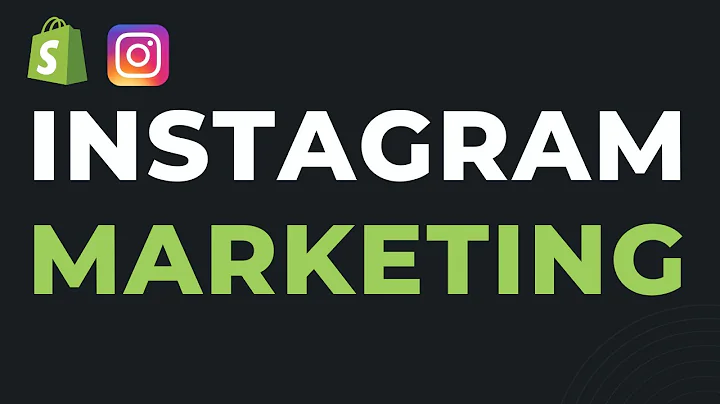Unlock Shopify's Free Trial and Start Your Online Store Now!
Table of Contents
1. Introduction
2. Creating a Shopify Account
2.1 Choosing a Domain Name
2.2 Building a Social Presence
3. Navigating the Shopify Dashboard
3.1 Understanding Shopify Academy
3.2 Home Page
3.3 Orders
3.4 Products
3.5 Customers
3.6 Analytics
3.7 Marketing
3.8 Discounts
3.9 App Section
4. Exploring Shopify Themes
4.1 Free Themes
4.2 Paid Themes
4.3 Customization Options
5. Conclusion
How to Get a Shopify Free Trial and Start Your Online Store
Are you interested in starting your own online store but hesitant to commit without testing the platform first? In this article, we'll guide you through the process of getting a Shopify free trial and setting up your own online store. With no credit card required, you can explore the features and functionality of Shopify to determine if it's the right fit for you and your business.
1. Introduction
Shopify offers a 14-day free trial that allows you to build your dream website for your business and start generating results financially. Before diving into the trial, there are a few steps you should consider to make the most out of your experience.
2. Creating a Shopify Account
To begin your Shopify free trial, you'll need to create an account. Here are some key considerations when setting up your account:
2.1 Choosing a Domain Name
Select a domain name that reflects your brand and is available across all social media platforms. This will help you build a consistent brand presence and protect yourself from identity theft on other platforms as your Shopify website grows.
2.2 Building a Social Presence
Create accounts on YouTube, Instagram, Facebook, LinkedIn, and other relevant social media platforms to establish a social presence around your domain name. This will contribute to building a brand and ensure long-term sustainability for your business.
3. Navigating the Shopify Dashboard
Once your account is set up, it's important to familiarize yourself with the Shopify dashboard and its various features. Here's a breakdown of the key sections in the dashboard:
3.1 Understanding Shopify Academy
Explore the Shopify Academy, where you'll find free tutorials and training provided by Shopify. This resource will help you learn how to use Shopify effectively and start generating revenue as quickly as possible.
3.2 Home Page
The home page of your Shopify dashboard provides an overview of your store's status and key metrics. This is where you can navigate to different sections and access important information about your business.
3.3 Orders
The orders section allows you to manage and track incoming orders. You'll be able to see all the orders placed in your store and handle them efficiently.
3.4 Products
The products section is where you can create and manage all the products in your store. You can upload product images, set prices, and provide detailed descriptions.
3.5 Customers
In the customers section, you'll find a complete list of all the customers who have purchased your products. This information can be used for targeted marketing and customer relationship management.
3.6 Analytics
The analytics section provides valuable insights into the performance of your online store. You can track visitor statistics, monitor conversion rates, and identify areas for improvement.
3.7 Marketing
The marketing section offers tools and features to promote your products and drive traffic to your store. Here, you can create campaigns, leverage social media integrations, and implement SEO strategies.
3.8 Discounts
In the discounts section, you can create and manage discount codes for your products. Offering discounts can help increase conversions and attract more customers to your store.
3.9 App Section
The app section allows you to enhance the functionality of your online store by installing various Shopify apps. These apps offer additional features and integrations to optimize your store's performance.
4. Exploring Shopify Themes
Aesthetics play a significant role in attracting and retaining customers. Shopify offers a variety of themes to customize the look and feel of your store. Here's what you need to know:
4.1 Free Themes
Shopify provides a selection of free themes that you can use to make your store visually appealing. These themes require little to no customization and are a great starting point for beginners.
4.2 Paid Themes
If you're looking for more advanced themes with additional features and customization options, Shopify also offers paid themes. These themes come at a cost, but they can provide a unique and tailored shopping experience for your customers.
4.3 Customization Options
Regardless of whether you choose a free or paid theme, Shopify allows you to customize the appearance of your store to match your brand and personal preferences. You can modify images, layout, and other elements to create a unique online shopping experience.
5. Conclusion
Getting a Shopify free trial is an excellent way to test the platform and start building your online store. By following the steps outlined in this article, you'll be well-equipped to make the most out of your trial and set up a successful online business. Remember to take advantage of the various features, themes, and customization options provided by Shopify to create a unique and engaging shopping experience for your customers.


















